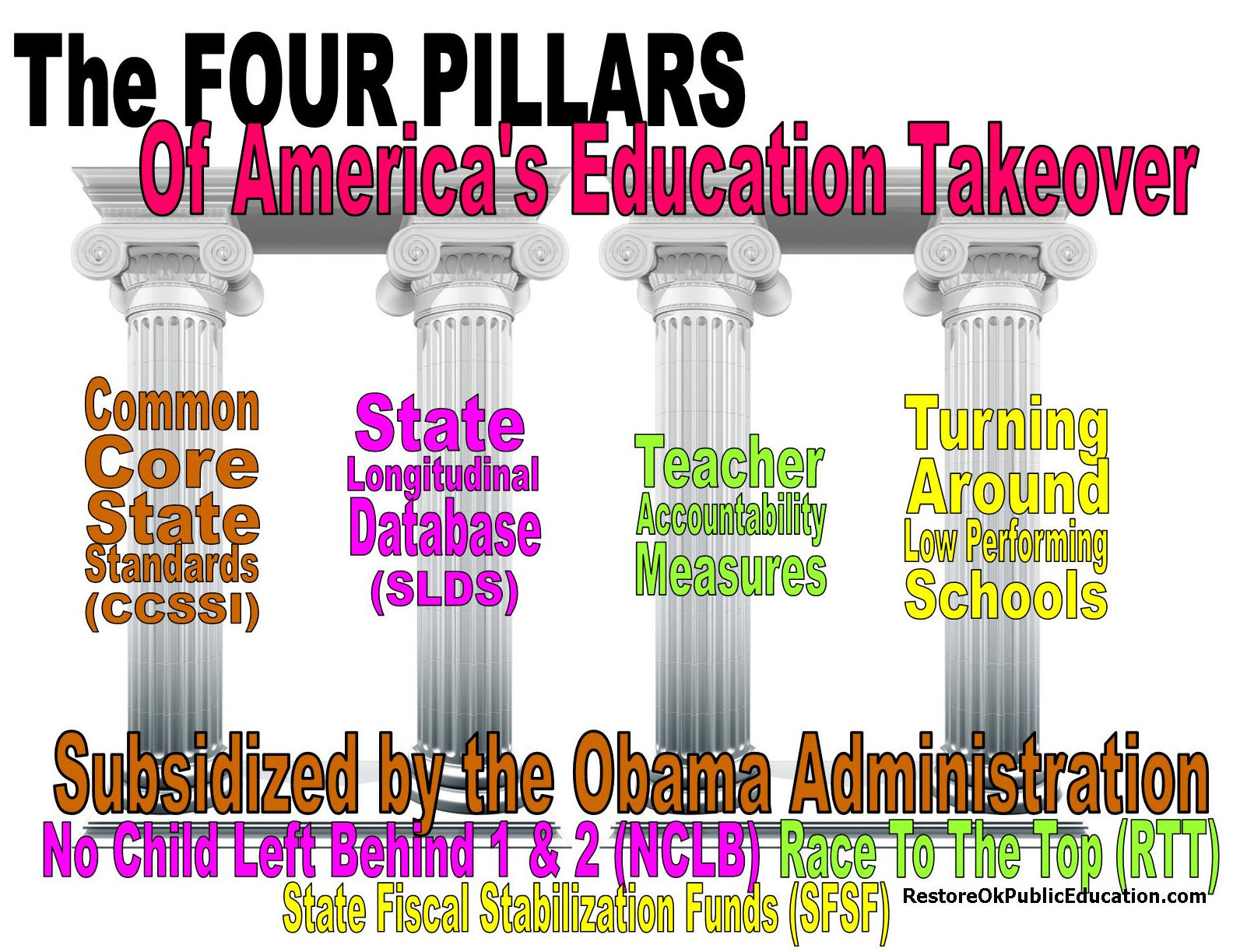I never liked Senator Obama’s education platform. It’s nothing personal. It’s just that too much of it reflected the outcome-based theory that is the basis of No Child Left Behind and the cause of the “unintended consequences” this country experienced as a result of its adoption.That doesn’t mean that Mr. Obama didn’t put forth some good ideas. He did.
“an education agenda that moves beyond party and ideology, and focuses instead on what will make the most difference in a child’s life.”
And his stance on education was most thoroughly and clearly expressed in Ohio.
“Closing the achievement gap that exists in too many cities and rural areas is right. More accountability is right. Higher standards are right.
But I’ll tell you what’s wrong with No Child Left Behind: forcing our teachers, our principals and our schools to accomplish all of this without the resources they need is wrong.”
And “…we have to make sure that subjects like art and music are not being crowded out of the curriculum.”
So at that moment in time, September 9, 2008, he stood firmly on the failed theory that standards and tests reform schools, but, he grasped the idea that resources —supporting children, families, and school personnel— were required to not only achieve test scores but to also provide a broad and varied curriculum that defines “quality” education. He almost had a clear vision for real reform.
But thus far, he has done what those before him did; he focused on the easier path of standards and testing.
His ideas back then,
“…a new Service Scholarship program that will recruit top talent into the profession, and place these new teachers in overcrowded districts and struggling rural towns, or hard-to-staff subjects like special education, in schools across the nation.”
“…more Teacher Residency Programs … especially in math and science.”
“…expand mentoring programs that pair experienced, successful teachers with new recruits.”
“…access to quality after-school and summer school and extended school days for students who need it.”
As the New York Times wrote,
In his last major educational speech of the campaign, Mr. Obama said: “It’s been Democrat versus Republican, vouchers versus the status quo, more money versus more reform. There’s partisanship and there’s bickering, but no understanding that both sides have good ideas.”
And he made the choice of Mr. Arne Duncan for Secretary of Education because as the director of educational policy at the Business Roundtable, Susan Traiman, said;
“Both camps will be O.K. with the pick!”
The Business Roundtable accurately represents one camp.
Political camps? What about reform philosophy? What about Obama’s education platform?
Mr. Duncan once wrote,
“When organizations and individuals harness their resources to support children and families, both schools and neighborhoods benefit….By inviting parents and diverse stakeholders into the school reform effort, we can collectively raise education to the next level in our neighborhoods and across the country.”
Problem? The political camps aren’t inviting everyday parents or welcoming diverse ideas. Their ideology is set. And obviously there is no understanding of the fact that the people working day-to-day with the children are the ones who are in a position to best identify and support “what will make the most difference in a child’s life.”
We folks who care about our children shouldn’t need an invitation.That door should be open; these are our schools. And I’d be willing to bet that none of us invited the Business Roundtable to come save our schools! These groups could go away and not be missed.
But the politics of education reform isn’t going away any time soon; the camps have dug their trenches. What we can do is minimize the damage.
President Obama’s introduction to A Blueprint for Reform: The Reauthorization of the Elementary and Secondary Education Act included these words,
“We must recognize the importance of communities and families in supporting their children’s education, because a parent is a child’s first teacher. We must support families, communities, and schools working in partnership to deliver services and supports that address the full range of student needs.”
But the Blueprint did not reflect the rhetoric. It more accurately reflected the Joel Klein and Michelle Rhee camp which is a big one! It reflected the plans of those who support an illusion of reform based on testing, labeling, closing, and chartering our schools.  Meanwhile, a concept expressed by both the president and his secretary of education, that of community-based school improvement that was once favored by these men, was written into the Blueprint in a manner doomed to fail. The choice of wording was divisive.
Meanwhile, a concept expressed by both the president and his secretary of education, that of community-based school improvement that was once favored by these men, was written into the Blueprint in a manner doomed to fail. The choice of wording was divisive. Any education writers savvy to the politics in this country would not have stated the community education concept like that! These words had to have been written intending to draw fire from the right-wing. They are a politically divisive choice of words that takes a great concept and makes it sound like a federal take-over of our children.
Any education writers savvy to the politics in this country would not have stated the community education concept like that! These words had to have been written intending to draw fire from the right-wing. They are a politically divisive choice of words that takes a great concept and makes it sound like a federal take-over of our children.
So this is where we need to ask, was this administration sabotaged or simply swayed by the prevailing politics of “reform”?
I always wondered, but I’m no longer sure it matters. What matters is where we go from here. We could still follow the Obama vision even though he hasn’t.
“…in Washington [it] starts by making sure that every tax dollar spent by the Department of Education is being spent wisely. When I’m president, programs that work will get more money. Programs that don’t work or just create more bureaucracy and paperwork and administrative gridlock will get less money.”
I want you to hold me accountable. And that’s why every year I’m president, I will report back to you on the progress our schools are making because it’s time to stop passing the buck on education and start accepting responsibility. And that’s the kind of example I’ll set as president of the United States.”
Accountability?
“In the end, responsibility for our children’s success doesn’t start in Washington, it starts in our homes. It starts in our families. Because no education policy can replace a parent who’s involved in their child’s education from day one – who makes sure their children are in school on time, helps them with their homework after dinner, and attends those parent- teacher conferences. No government program can turn off the TV set or put away the video games or read to your children.”
Accountability?
“But we can help parents do a better job. That’s why I’ll create a parents report card…
…we need to hold our government accountable. Yes, we have to hold our schools accountable. But we also have to hold ourselves accountable.”
Yes We Can. By all means, let’s call for accountability.

